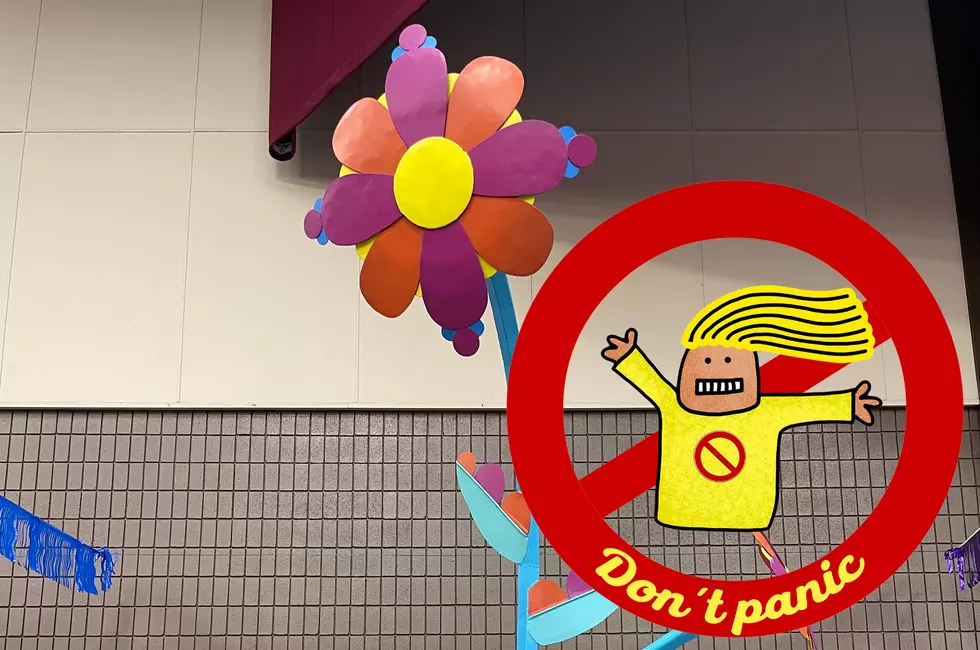
10 Ways To Spot Fake News
Fake News is in the news these days and the idea of cleaning it out can be a scary one. Do we really want some one censoring someone else's writing, even if it's b.s.? Or do we just stop those sources that are consistently churning it out?
It only takes a few seconds for you to figure out if you're having smoke blown up your keister and I have ten tips that will help you. The biggest and easiest way for fake news to go away is for us to ignore it or not pass it along. Once the people who are making it up lose their readers, there's no point in them continuing.
- 1
Look At The Website URL
What most people don't realize is that most fake news sites are just a "guy in a basement" or even a team from overseas that gets paid for clicks. Even if you've seen the URL multiple times it doesn't mean its real journalists with fact finding skills and integrity. I find it amazing that some people believe that a website they've never heard of, run by a person they've never heard of, somehow stumbled across some giant breaking story or universal truth. Most of these website names make it obvious that it's not legit, but be careful, there are some that will adopt part of a legitimate websites name in order to fool you (something like abcnews.com.co, instead of www.abcnews.com). Extra dots in the URL are almost always a sign that some low budget operation is behind the scam.
- 2
Verify That The Story Is On Multiple Sites
I recently saw a story about congress cutting social security on a somewhat familiar URL. Trying to give everyone the benefit of the doubt, I checked the story and found that it was on many legitimate news sites. Hey, this fact checking works two ways, it can prove things wrong or right and so be it.
- 3
Trust The Big Boys (at least a little)
I don't believe most old school media companies have spelled out agendas. Some of the people in them do, but that's hard to transcend from the top to print without someone spilling the beans somewhere along the line. The big boys know if they get caught red-handed, they'll lose credibility and that means readers and advertisers will check out. So while some bias is possible, it's hard, in most cases to be pervasive. This isn't applicable to some of the younger upstarts in the business. I'm referring to the biggies here like ABC, CBS, NBC, USA Today, and some of the nations older, respected newspapers. If a couple of these organizations agree on a topic, chances are very high that it's the real deal.
- 4
Admit When You've Been Suckered
This almost seems off-point and more of "what you should do when you spot fake news" rather than "how to spot it", but a big part of exposing this nonsense is realizing we're all complicit. We click, we share and sometimes we mess up. No one likes to feel dumb or like they've been gullible. Sometimes this causes you to dig your heels in a bit and defend something that's giving your brain a little itchy feeling that it isn't entirely correct. There's no shame in admitting your wrong. In fact, you need to get mad that you were decieved and act on it too. Report the article, don't share it and type b.s. underneath it every time you see if pop up on your feed.
- 5
It Makes You Mad Immediately
We've all read a headline that makes us so mad we could spit. Guess what? That's exactly what they were designed to do. They were designed to get you mad and to click through or pass it along before you even had time to think about it. If it makes you angry, it should always be cause for concern. Anger is one of the most powerful of your emotions and fake news purveyors love to use that to their advantage.
- 6
Are There Links Or Quotes In The Story?
I'm just a little ol' blogger in Lubbock, Texas. In fact, you probably shouldn't believe anything I have to say (except concerning this topic, there's really no reason for me to lie). Still, you'll see outside links, sources cited or even quotes from the parties involved in most legitimate news stories. Reporters know that those things make any story much more powerful, so they are frequently included.
- 7
Check To See If It's New Or Re-hashed Old News
This is a favorite one of fake news organizations. They'll take an old event and repurpose it with a new, often inflammatory title. For instance they could write "620,00 Dead In Fight For U.S. Freedom" and you'd go, "holy hell, how is this the first I heard of this?". You'd then find out that that was the number that died in the Civil War. Usually these types of stories are more clever than harmful, but "news" usually details current events and not history.
- 8
Does The Article "Confirm Everything You've Ever Suspected"
This may be the hardest one to get people to ever accept. There is that old saying, "if it seems too good to be true, it's too good to be true". The same goes for news. If think a candidate is a lying, scumbag, double-dealer and someone writes an article claiming that candidate is a lying, scumbag, double-dealer, chances are it was written to fool you. It was written to appeal to your narcissism and give you a chance to prove you were "right" to all your friends. Now, I'm not saying that that candidate isn't a lying, scumbag, double-dealer, but if it's all wrapped up in one tidy little package for you, it may be fake.
- 9
Check The Headline On A Fact Checking Site
The easiest way to check a story is to head over to Snopes or Factcheck.org. These sites are so good at what they do, there's any number of fake news sites trying to discredit them. It's got to the point where Factcheck.org has checked into claims of Snopes lying and proving that they didn't. I know a lot of people these days don't understand the concept of journalistic integrity, but it's simple, if a a place that traffics in fact finding is found to be lying, they lose everything. It's logic people. Coke knows if a mouse gets in a can then word will get out and no one will drink Coke. Snopes knows if they put a lie in a story it will get out and no one will go to Snopes. In fact, if you really some great examples of fake or biased newsites, check out the ones claiming "Snopes Lied".
- 10
Are You Sure You're Just Not Getting The Joke?
A lot of these stories are meant to be humorous and since humor is so subjective, some people take it as the truth. That's to say that some peoples attempts at humor fall flat and what's left is a story that may or may not be passed along as real. A great example this past week was the "ad" for the Fisher Price Happy Hour Playset. The artwork was so well done that people took it as a real thing thing. Now realize that if people believe there is a bar playset for kids, they'll believe anything.
More From KFMX FM









